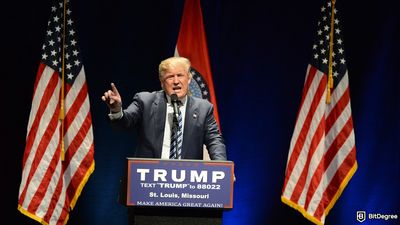In fall, respondents no longer considered crypto a threat to the US economy.
The Federal Reserve Bank of New York, one of 12 Federal Reserve Banks in the United States responsible for financial supervision and payment systems, has shared a Financial Stability report, which includes a survey citing potential risks for the US economy.
According to the survey, dubbed “Most-cited potential risks over the next 12 to 18 months,” conducted from January to April 2022, crypto had placed 12th. Whereas the same survey conducted from August to October 2022 removed crypto from the list completely.

Did you know?
Want to get smarter & wealthier with crypto?
Subscribe - We publish new crypto explainer videos every week!
NEAR Protocol Explained: Beginner's Guide to NEAR (Animated)


In spring, less than 20% of respondents considered crypto a threat, along with “China growth slowdown, real estate correction, central counterparty/exchange distress.” At that time, US citizens were more worried about geopolitical tension, inflation, foreign divestments, COVID-19, and high energy prices.
Whereas, in the fall, US citizens remained persistent, naming geopolitical tension, inflation, and higher energy prices among the most-cited potential risks. The respondents added “value of US dollar, under-regulated nonbanks, Europe recession, and supply chain disruptions” among things imposing risk to the US economy.
It can be argued that the 12th position in spring and complete disappearance in fall reveal a shift in investors' mindset related to cryptocurrencies.
Although investors may be ready to not consider crypto as a threat to the country's economy, US central bank is not as keen to make such decisions. In its report, the Federal Reserve Bank of New York noted that cryptocurrencies, like Bitcoin (BTC), Ethereum (ETH), Binance Coin (BNB), Cardano (ADA), and Ripple (XRP), dropped in price by 69% compared to November 2021. The central bank added:
Speculation and risk appetite appears to be the primary driving forces of crypto-asset prices, which have recorded big swings in recent years.
In its report, the central bank cited TerraUSD (UST) collapse, claiming that entities exposed to the asset had to deal with financial distress.






















